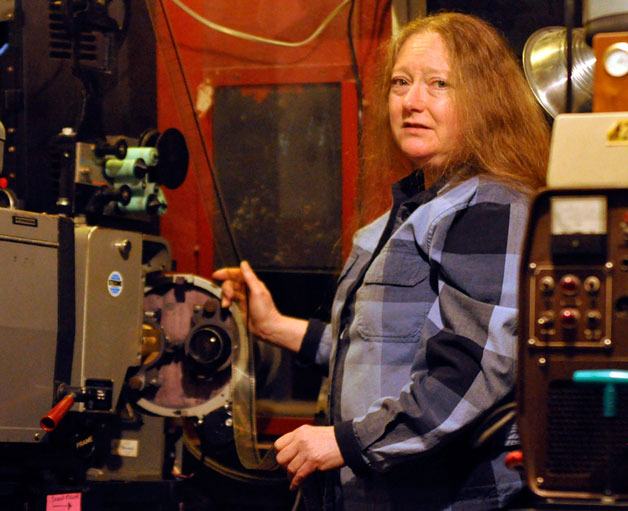ARLINGTON — When the Olympic Theatre was built in 1939, the standard in showing motion pictures was 35 mm film. In the decades to follow, technology changed but film remained the same — until now.
This year, major movie studios plan to cease production of film reels as they switch to digital, but equipping a theater with digital projectors is a costly endeavor and small theaters everywhere are feeling the pressure, including the Olympic Theatre.
Norma Pappas has owned the Olympic Theatre since 1977 when she bought the space with her dad. She has been running the theater for 35 years doing everything from splicing film to selling tickets and concessions. She prides herself on having affordable prices and being a staple in Arlington, especially for young families who could not afford the movie experience at large corporate multiplex theaters.
But everything will change if studios stop making movies on film, because switching to digital could cost her up to $100,000.
“It’s unthinkable,” said Pappas. “Thirty-five millimeter has been the standard for 100 years. There’s no reason why big studios can’t put a few copies on film to keep us small theaters in business.”
According to Pappas, it can take 27 years for big multiplex theaters to recoup the costs of their transition. For the Olympic Theatre, it is just not possible.
“If they stop making film this year, we will have to close,” said Pappas. “I try to play the pictures people want to see. I keep it as family oriented as possible because that’s what Arlington wants. People don’t realize that I’ve dedicated 35 years of my life to this. If they stop making film I will be forced to close along with 1,000 other small-town theaters across the U.S.”
Members of the Arlington community have started a Facebook page called “Save the Olympic Theatre.” Several users have shared personal experiences on the page, including childhood movie-going memories. Others have talked about fundraising or starting a foundation to support it. But Pappas made it very clear that she is not looking for hand-outs. “I’m the kind of person that if I can’t afford it, I don’t buy it. I am very self-sufficient,” she said. She has considered other ideas, including selling the property for other uses. “Perhaps someone could buy it,” she said. “But the space next door has been closed and for sale here for two years.”
Pappas believes the studios that refuse to produce film are purposely edging out the small locally owned theaters because they aren’t making them a profit. “I feel like they want to force us out. I just have that feeling. And if you’re going to do it, this is the best way. Take away our format, make it undoable.” Although she doesn’t want to close the theater, she does not see it as a wholly negative possibility. “I’ve been here for so long,” she said. “I work here seven days a week and my stress levels are over the top. Maybe it’s time for me to do something else. Something for myself.”







